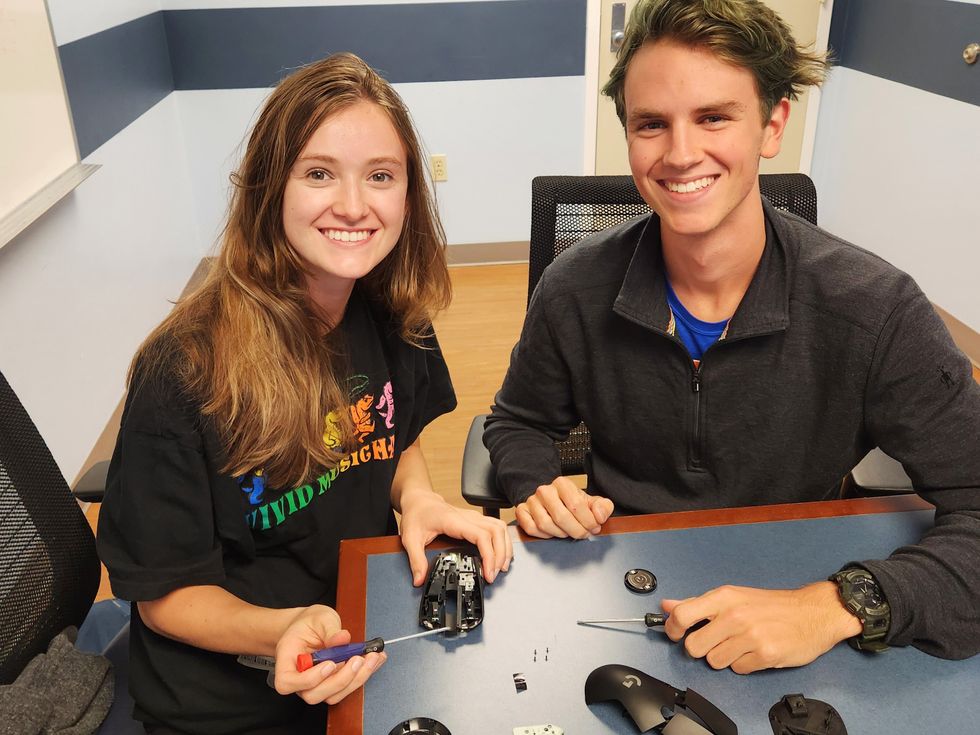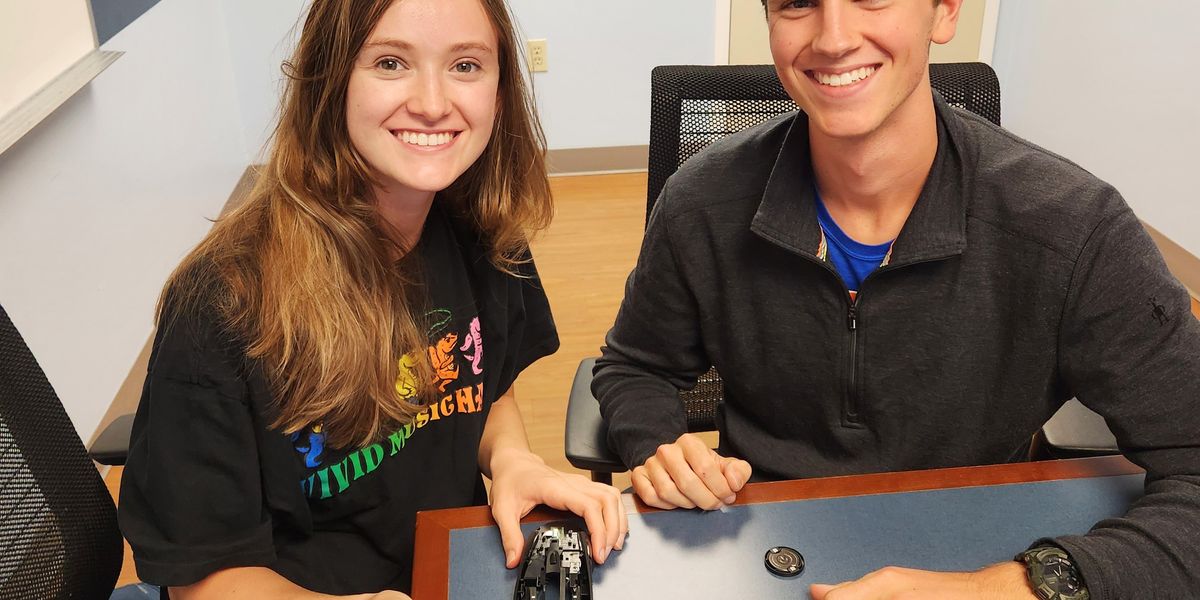This IEEE Service-Learning Program Is More Popular Than Ever

Since its founding in 1995 at Purdue University, the Engineering Projects in Community Service (EPICS) in IEEE program has been providing nonprofit organizations with technology to improve and deliver services to their community while broadening undergraduate EE students’ hands-on experiences.
In 2009 the EPICS program was brought to IEEE by Moshe Kam, an IEEE Fellow and the 2005–2007 vice president of IEEE Educational Activities; Senior Member Kapil Dandekar; and Fellow Saurabh Sinha. Together they founded EPICS in IEEE as an IEEE Educational Activities program. Funding for the program came from a seed grant through the IEEE New Initiatives Committee.
This year the program marks its 15th anniversary.
“When we created EPICS in IEEE,” Dandekar says, “we were very eager to align the perspective of service-learning from the EPICS program at Purdue with IEEE’s mission to foster technological innovation for the benefit of humanity.
“I am particularly proud of the continuing stakeholder engagement by engineers with humanitarian organizations in shaping projects. I firmly believe that this leads to a better learning experience for the engineering students and a more useful outcome for the humanitarian partner organization.”
During the past 15 years, more than 219 projects in 34 countries have been completed, involving more than 11,000 students in service-learning projects. Of those students, 47 percent identified as female.
“EPICS in IEEE has played a key role in expanding the global reach of projects in which engineering students bring their learning and skills to bear in addressing challenges faced by their local communities,” says Leah Jamieson, 2007 IEEE president and a cofounder of EPICS at Purdue, which is in West Lafayette, Ind. “By tackling community needs in the areas of access and abilities, education and outreach, human services, and the environment, students participating in EPICS in IEEE are gaining firsthand experience in marrying engineering and community. Project by project, they are contributing to IEEE’s goal of advancing technology for the benefit of humanity.”
A focus on learning outcomes
The program differs from other humanitarian efforts within IEEE because of its focus on engineering-student learning outcomes as well as the benefits to the local communities.
“EPICS in IEEE is a perfect way to merge engineering education and engagement,” Sinha says. “It provides an opportunity for universities to connect their students’ educational experiences to support the U.N. sustainable development goals.
“I’ve had the privilege of seeing EPICS in IEEE in many countries,” he adds, “and enjoyed the globalizing benefit that the program brought to all parties involved.”
The projects include a recycling center to reduce plastic waste at Ankole Institute, in southwestern Uganda. The center was built by students from Kyambogo University of Kampala, Uganda.
A team of students from the University of Florida, in Gainesville, designed a computer mouse for those whose hands or arms have an abnormality, so they could more easily play games.
Arizona State University students created a solar-powered air filtration system for nomadic people in Mongolia.
“By tackling community needs in the areas of access and abilities, education and outreach, human services, and the environment, students participating in EPICS in IEEE are gaining firsthand experience in marrying engineering and community.” —Leah Jamieson, 2007 IEEE president and cofounder of EPICS at Purdue.
In Panama, engineering students from Universidad Tecnológica de Panama’s electrical engineering and computer science departments used their tech know-how to make the university’s campus more accessible for people with disabilities. They employed a 3D printer to make signs in braille, they built a wheelchair, and they automated the school’s doors to improve access.
In follow-up surveys about their EPICS in IEEE participation, students have shared that it was unlike anything they did in the classroom.
“This experience has been a profound learning opportunity,” says Leonardo Vergara, a systems engineering student at Universidad del Norte, Barranquilla, in Colombia.
“My collaboration and communication skills have also been greatly enhanced,” Vergara adds. “It has reaffirmed my belief in technology’s power to create positive social impact and ignited a sense of social responsibility.”
Continued growth
To take the program to the next level, EPICS in IEEE in 2014 created a fund through the IEEE Foundation to help donors support the program. The Foundation is IEEE’s philanthropic partner.
EPICS in IEEE continues to partner with EPICS Purdue and participates in its University Consortium, a network of institutions that strives to share ideas and support development for service-learning programs.
“Over the past 15 years, the term service learning has been evolving and is often now referred to as community-engaged learning,” says IEEE Member Stephanie Gillespie, chair of EPICS in IEEE. “This updated terminology better reflects the significant role the community has in the learning process. EPICS in IEEE requires significant community-partner engagement alongside the IEEE and student involvement because this partnership with a community organization is more likely to lead to long-term project support and maintenance once deployed into a community.
“As the field of service learning and community-engaged learning evolves, so does EPICS in IEEE. We are excited to celebrate how far EPICS in IEEE has come in 15 years.”
In the past two years, the committee has noticed increased interest in service learning, reviewing 190 proposals in 2023, compared with 77 the year before. The committee approved 39 projects last year, up from 23 in 2022.
The program has streamlined its processes and increased its marketing efforts. It now provides more resources to help ensure the success of the projects. In addition, EPICS volunteers have strengthened partnerships with IEEE affinity groups, technical societies, and regions and sections to raise awareness of the program among student and IEEE members.
Celebratory events
EPICS in IEEE is commemorating its 15th anniversary with a number of events. The celebration kicked off during the IEEE Rising Stars conference, held from 5 to 7 January in Las Vegas. At the conference, program volunteers and staff members gave presentations about its progress, and student teams showcased their prototypes.
Virtual events are planned for this year, as well as stories posted on the EPICS in IEEE website, highlighting past and current projects.

